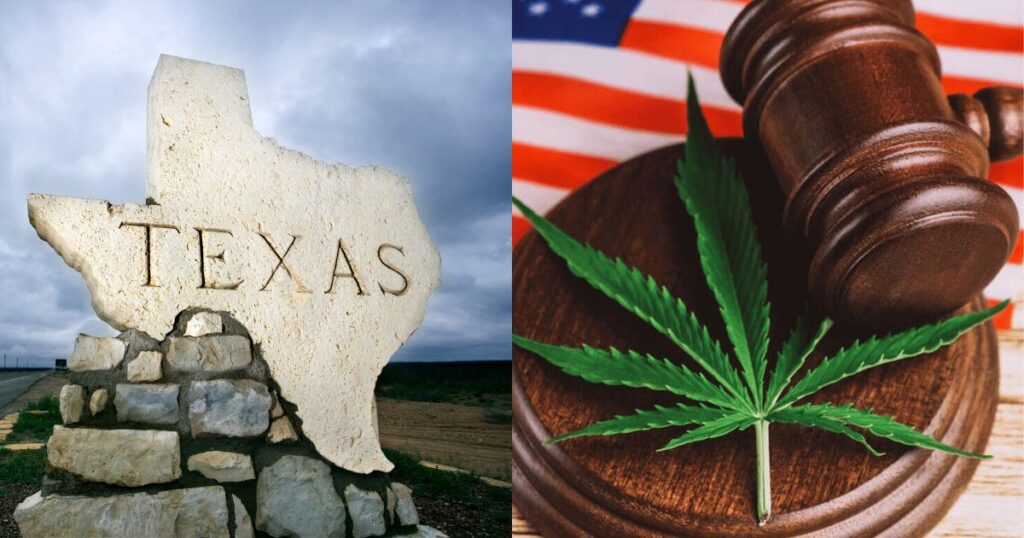The Texas governor has two critical bills on his desk, decisions that could significantly reshape the state’s cannabis and hemp policies. The two proposed bills, House Bill 46 (HB 46) and Senate Bill 3 (SB 3), highlight divergent pathways for the state’s approach to medical marijuana and hemp-derived THC products.
While HB 46 seeks to expand access to medical cannabis under the Texas Compassionate Use Program, SB 3 aims to strictly regulate and effectively ban intoxicating cannabinoids like delta-8 and delta-9 THC from hemp.
Expanding Medical Marijuana Access in Texas With House Bill 46
Introduced in the Texas Legislature, HB 46 represents a notable shift in the state’s medical marijuana program, which has long been considered one of the most restrictive in the country.
Sponsored by Representative Ken King and co-sponsored by Representative Penny Morales Shaw, the bill proposes several key updates aimed at making medical cannabis more accessible and practical for a broader range of patients.
Under HB 46, new qualifying medical conditions would be added to the program. Including chronic pain, traumatic brain injuries, and terminal illness or hospice care needs.
While degenerative disc disease, glaucoma, and spinal neuropathy were considered for inclusion. But they ultimately did not make it into the final version of the bill.
Nevertheless, proponents argue that the proposed definition of chronic pain would still provide relief for many patients previously excluded from the program.
Another significant update allows for inhaling medical cannabis in the form of aerosols or vapors, though smoking remains prohibited.
Additionally, HB 46 would require the expansion of medical marijuana dispensaries from the current three statewide to at least 15. Satellite locations would also be permitted for the safe storage and distribution of products in more remote areas.
Physicians would gain more discretion under the bill, as dosage caps for patients would be removed, allowing tailored recommendations based on individual medical needs.
Restricting Hemp-Derived THC With Senate Bill 3
Contrasting Texas’s HB 46’s progressive stance on medical marijuana is SB 3, which seeks to impose strict limitations on hemp-derived THC products.
The bill focuses primarily on intoxicating cannabinoids, such as delta-8 and delta-9 THC, which are currently available in the form of edibles, drinks, and vape products in retail outlets across Texas.
Proposed by state lawmakers citing concerns over what they say is public safety, SB 3 would effectively ban the sale of products containing these cannabinoids, leaving only non-intoxicating options like CBD and CBG legal.
The rise of hemp-derived THC products in Texas has created an unregulated landscape, with products often marketed to younger consumers in retail locations like gas stations and smoke shops.
Supporters of SB 3 argue that stricter oversight is necessary to prevent misuse and ensure consumer safety. Lieutenant Governor Dan Patrick has been a vocal advocate for the measure, emphasizing its importance in curbing the availability of unregulated THC products.
However, pushback from the hemp industry has been significant. Industry representatives have highlighted the economic stakes of the proposed ban, with Texas’s hemp market valued at $8 billion annually.
Business leaders warn that the bill would lead to job losses for as many as 50,000 workers and could drive the sale of THC products underground, fueling the illicit market rather than eliminating availability.
Mixed Reactions For Senate Bill 3
The legislation around SB 3 has caused sharp divisions. Supporters push for stricter enforcement, while others prefer a measured approach. Many oppose the blanket ban. They suggest age restrictions and better enforcement of existing rules as alternatives.
The Texas Hemp Business Council has been actively urging Governor Greg Abbott to veto the legislation. They argue that the new restrictions will have severe consequences. Smaller businesses are likely to be hit the hardest. Veterans and medical cannabis patients could also suffer disproportionately.
Despite objections, proponents of SB 3 argue that it represents a necessary step toward creating a safer retail environment.
Agriculture Commissioner Sid Miller has reassured farmers that hemp cultivation for non-intoxicating purposes will remain legal. However, questions still remain. It is unclear how effectively the separation between farming and retail applications will hold in practice.
Potential Intersection of Medical Marijuana of HB 46 and the Hemp-Derived Ban of SB 3 in Texas
Taken together, HB 46 and SB 3 illustrate Texas’s multifaceted approach to cannabis policy. While one bill works to expand medical access, the other seeks to restrict access to hemp-derived products that people use for medicine.
This duality reflects an effort to strike a balance between public safety concerns and patient access. Although critics question whether the two goals are fully reconcilable under the current framework.
For example, HB 46’s expanded medical marijuana offerings could help mitigate some of the loss of access caused by SB 3 in terms of treatment options for patients.
However, if Senate Bill 3 is signed, a large portion of the people using those products will likely be unable to qualify for the medical program.
The long-term adoption of a medical marijuana program could face challenges in Texas. Stricter restrictions may alienate patients seeking affordable options. Hemp-based THC products currently offer more accessibility and affordability. Patients may favor these options, hindering medical cannabis program growth.
Economic considerations add another layer of complexity. Texas’s hemp industry has thrived since the legalization of hemp farming in 2019, helping to diversify the state’s agricultural and retail economies.
Bans like SB 3 could impact sectors tied to hemp-derived cannabinoids. Which would reverse years of growth and innovation.
The debate over HB 46 and SB 3 highlights the intricate and, at times, contradictory nature of cannabis reform. The final decision by Governor Abbott will play a crucial role in shaping the state’s future.
If both bills are signed into law, Texas will face a unique challenge. The state will need to implement policies that restrict hemp-based THC products. At the same time, Texas will likely expand access to medical marijuana.















